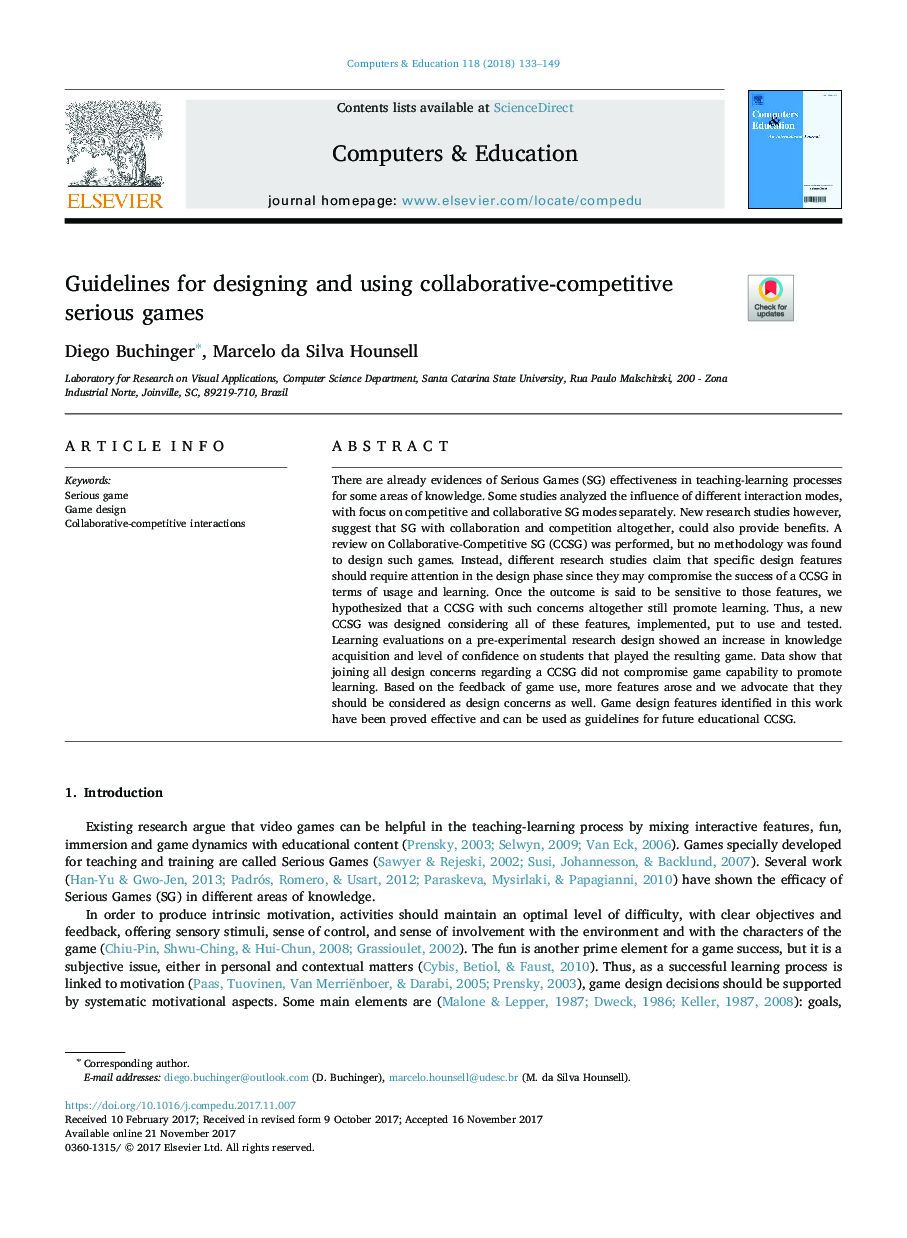| Article ID | Journal | Published Year | Pages | File Type |
|---|---|---|---|---|
| 6834810 | Computers & Education | 2018 | 17 Pages |
Abstract
There are already evidences of Serious Games (SG) effectiveness in teaching-learning processes for some areas of knowledge. Some studies analyzed the influence of different interaction modes, with focus on competitive and collaborative SG modes separately. New research studies however, suggest that SG with collaboration and competition altogether, could also provide benefits. A review on Collaborative-Competitive SG (CCSG) was performed, but no methodology was found to design such games. Instead, different research studies claim that specific design features should require attention in the design phase since they may compromise the success of a CCSG in terms of usage and learning. Once the outcome is said to be sensitive to those features, we hypothesized that a CCSG with such concerns altogether still promote learning. Thus, a new CCSG was designed considering all of these features, implemented, put to use and tested. Learning evaluations on a pre-experimental research design showed an increase in knowledge acquisition and level of confidence on students that played the resulting game. Data show that joining all design concerns regarding a CCSG did not compromise game capability to promote learning. Based on the feedback of game use, more features arose and we advocate that they should be considered as design concerns as well. Game design features identified in this work have been proved effective and can be used as guidelines for future educational CCSG.
Keywords
Related Topics
Social Sciences and Humanities
Social Sciences
Education
Authors
Diego Buchinger, Marcelo da Silva Hounsell,
